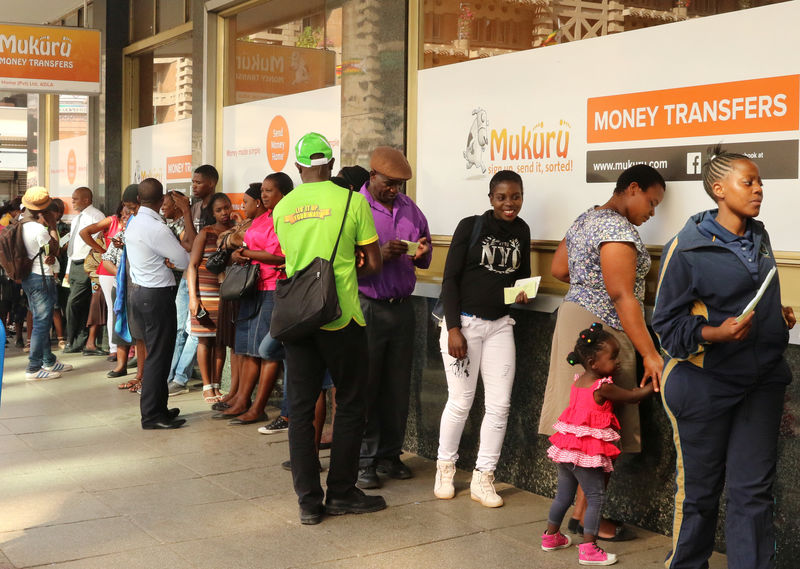By MacDonald Dzirutwe
HARARE (Reuters) - Zimbabwe will introduce a new currency in the next 12 months, the country's Finance Minister said, as a shortage of U.S. dollars plunges the financial system into disarray, forcing businesses to close and threatening unrest.
The southern African nation abandoned its own hyperinflation-wrecked currency in 2009 at the height of an economic recession, adopting the greenback and other currencies including sterling and the South African rand.
But without enough hard currency to back up the $10 billion of electronic funds trapped in local bank accounts, businesses and civil servants are demanding payment in cash which can be deposited and used to make payments both inside and outside the country.
Mthuli Ncube told a townhall meeting late on Friday that a new local currency would be introduced in less than twelve months.
"On the issue of raising enough foreign currency to introduce the new currency, we are on our way already, give us months, not years," he said.
Zimbabwe currently has less than two weeks import cover, according to central bank data, and the government has previously said it would only consider launching a new currency if it had at least six months of reserves.
Locals are haunted by memories of the Zimbabwean dollar, which became worthless as hyperinflation spiraled to reach 500 billion percent in 2008, the highest rate in the world for a country not at war, wiping out pensions and savings.
A surrogate bond note currency introduced in 2016 to stem dollar shortages has also collapsed in value.
President Emmerson Mnangagwa is under pressure to revive the economy but, in something of a vicious circle, the dollar shortages are undermining efforts to win back foreign investors sidelined under his predecessor Robert Mugabe.
With less than $400 million in actual cash in Zimbabwe according to central bank figures, there are fuel shortages and companies are struggling to import raw materials and equipment, forcing them to buy greenback notes on the black market at a premium of up to 370 percent.
The Confederation of Zimbabwe Industries has warned some of its members could stop operating at the end of the month due to the dollar crunch.
Zimbabwe's iconic manufacturer of cooking oil and soap, Olivine Industries said on Saturday it had suspended production and put workers on indefinite leave because it owed foreign suppliers $11 million.

A local associate of global brewing giant Anheuser-Busch Inbev (BR:ABI) said this week it would invest more than $120 million of dividends and fees trapped in Zimbabwe into the central bank's savings bonds.